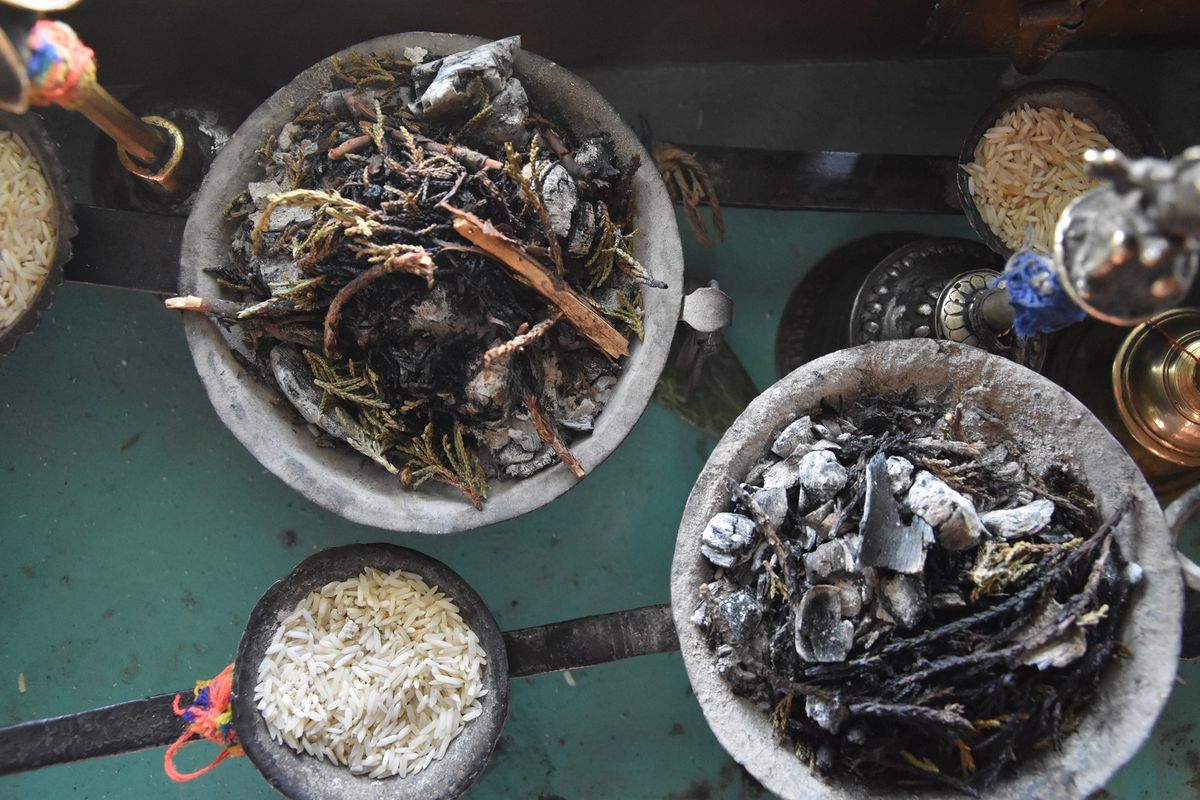Leipzig University is a widely recognized hub for innovative research in the field of globalisation and transregional studies. The Institute of Anthropology significantly contributes to this field of research with a number of projects that won competitive funding. The main research foci are technology and citizenship, social justice and rights, food security and people’s relationship to land, neoliberal governance and entrepreneurship, migration as well as ecological transformations.
Current research projects
Research at the Institute of Anthropology currently focuses on politics and governance in relation to digitisation, social justice and inclusion, as well as experiences of environments and wellbeing. With our research, we strive for empirically rich theoretical work and a profound understanding of how current political imaginations and utopias shape and enact the future.
Digital Governance and the Respatialisation of the Indian State
This project traces the spatial consequences of new modes of governing through digital technologies in India. The project is dedicated to investigating the role of administrators, politicians and citizens as spatial entrepreneurs in this process. By examining the planning, implementation and appropriation of digital governance projects, we produce systematic knowledge about the impact of digitisation on the spatial formation of the nation state. We study the ways in which national control mechanisms become entangled with global governance regimes, and examine the often-neglected spatial impacts of new digital infrastructures.
- Funding agencies:
DFG (Subproject of the Collaborative Research Centre 1199 "Processes of Spatialisation under the Global Condition") - Duration:
2020 – 2023 - Project manager:
Ursula Rao
Infrastructure and the Remaking of Asia through Adopting, Orchestrating and Cooperating
Investment in new infrastructures contributes significantly to the current rapid transformation of Asia. This thematic line of the Shaping Asia networking initiative studies the recursive processes by which new investments shape the social texture of Asian societies and visa-versa. We propose comparison as an ideal tool to map contrasts and similarities across different countries and understand the role of inner-Asian relations. We organise the analysis around three key experiences as part of implementing large-scale projects: adaptation, orchestration and cooperation. The three focus areas consider (1) the way new digital systems for the management of population are situationally adapted to different localities in Asia, (2) the streamlining effects of global engineering solutions for costal protection in South and South East Asia, and (3) the character of international collaboration in trans-border infrastructure projects. A core group of participating scholars has been chosen for their expertise in the relevant fields. This project will develop innovative methods for in-depth comparison and help to understand the relation between new infrastructures, political cultures, trans-regional connections and cooperation. Through interactions with the other members of the Shaping Asia networking initiative and during consultation with further experts, this project will contribute to a better understanding of the processes by which Asian futures are being produced.
- Funding Agency:
DFG (Subproject of the Network "Shaping Asia. Connectivities, Comparisons, Collaborations") - Duration:
2020 – 2022 - Project Management:
Ursula Rao
The Reconfiguration of Mental Health in the Context of Digitisation
Mental health and psy-discourses are increasingly migrating to the digital medium. Although the digitisation as a part of neoliberal psychopolitics is becoming increasingly important for (self-)care and coping with mental difficulties, there has been little medical anthropological research on it so far. This project investigates the reconfiguration of health and (self-)care under digital conditions. The study focuses on new digital technologies for coping with mental difficulties and on the discursive constructions of health-related effects of digital living environments on (mental) health and well-being. What effects does the use of new technologies have on the way people organize their everyday life and meet mental challenge stoday? Which new human-technology relationships emerge? Which visionary ethical and political projects are surfacing and which dystopian narratives shape local worlds and lead to political action?
- Funding Agency:
DFG Deutsche Forschungsgemeinschaft - Duration:
2019 – 2024 - Project Management:
Claudia Lang
Dealing with the Violent Past in Somalia: The Case of Forensic Anthropological Interventions in Somaliland and its Implications Beyond the Local Context
This research focuses on recent initiatives to excavate mass graves in internationally unrecognized Republic of Somaliland (northwestern Somalia). It explores how local people understand and react to forensic anthropological interventions, how these interventions take place and whose interests are involved. The project understands the initiatives to shed light on past atrocities with the help of forensics as part of a “global accountability regime”. One important research question is how the understanding of truth and accountability advanced by forensic anthropologists and supported by international human rights lawyers relates to (or is conflicting with) more local understandings of (proper) death and justice. Besides, the project addresses also the more practical questions: What can be learned from the ongoing forensic intervention in Somaliland for the rest of Somalia concerning dealing with the past? What is the relevance of forensic anthropology in general with regard to (post-)conflict settings in the global south, and particular with regard to Sunni Muslim contexts?
- Funding Agencies:
2019 – 2020: London School of Economics and Political Science (LSE) under the Award CRP Fellowship
2015 – 2018: Daimler and Benz Foundation (Project: 32-06/14) - Duration:
2015 – 2020 - Projekt Management:
Markus Höhne
